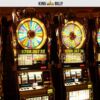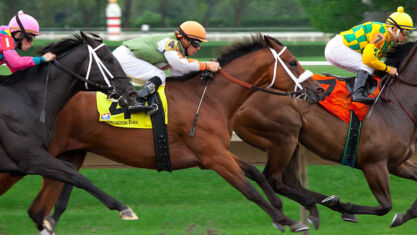Get ready to discover the world of bingo you have never known before! It’s not just about numbers and cards; there’s a whole bunch of cool stuff you probably didn’t know about this game. From old Italian roots to quirky slang words, bingo’s got a story to tell. So, whether you’re a bingo pro or just curious, let’s unravel top-10 super interesting facts about bingo that make the game way more than just a pastime.
Interesting facts about bingo games: Italian roots
Bingo has its roots in an Italian lottery game called “Il Giuoco del Lotto d’Italia,” which dates back to the 16th century. However, the exact birth year of bingo is still unknown. It later evolved into various forms of the game that we know today.
Edwin S. Lowe and Bingo Popularization
The modern version of bingo can be credited to Edwin S. Lowe, an American toy salesman who popularized the game in the 1920s. By the 1930s, bingo had become a widespread and popular fundraising activity for churches and charitable organizations. Its social and community-building aspects contributed to its rapid spread.
First Name
Interesting facts about bingo aren’t limited by its origin. Initially, the game was called “Beano” because players used… beans to mark their cards! After the pivotal moment when someone mistakenly shouted “Bingo” instead of “Beano,” Lowe decided to rename the game, so today we know it as bingo.
Benefits for Older People
Bingo is known for offering numerous benefits for the elderly! It provides a social outlet, promoting interaction among participants, which is crucial for mental and emotional well-being in older individuals. It also trains cognitive functions, helping to stimulate the brain and maintain mental acuity, which has been proven by thousands of seniors in the UK.

World Record for Largest Bingo Game
Did you know that there’s a world record for the largest bingo game? It was set in Colombia in 2006. Over 70,000 participants gathered in Bogotá to play their favorite game simultaneously, creating a monumental event that showcased the worldwide popularity and communal nature of the game.
Online Bingo Boom
With the rise of the internet, bingo transitioned to online platforms in the late 1990s. This digital adaptation has introduced the game to a broader audience and created new variations. Online bingo eliminates the real caller presence with an RNG-based program, which randomly selects winning numbers and speeds up the game.
Interesting Facts about Bingo Games: Variations
While the standard bingo game with numbered balls and cards is well-known, there are various regional and cultural variations of the game worldwide. In the UK, for instance, 90-ball bingo is popular, while in the US, 75-ball bingo is more common. Other popular bingo games include 50 Ball, 30 Ball, and Slingo – a combination of bingo and slot machines.
Mathematics and Winning Probability
The design of bingo cards is carefully calculated to ensure an equal distribution of numbers and minimize the chances of multiple winners in a single game. This adds an element of strategy to the game. However, some players use math to calculate the odds of winning, play with multiple bingo cards, and even choose seats with a better view on the caller to be the first to shout “Bingo!”
Superstitions
Like many games of chance, bingo has its fair share of superstitions. Some players have lucky charms and rituals they believe will increase their chances of winning. Common superstitions include the belief in lucky seats, where players feel certain spots in the bingo hall are more fortuitous for winning. Some players also have specific rituals, like tapping their bingo card for good luck or using a particular dauber color they associate with success.
Bingo Lingo
We have already listed useful bingo terms and phrases used in bingo halls. It’s funny and useful to learn how bingo pros call certain numbers, actions, and fellow players. For example, “two fat ladies” refers to the number 88, and “legs eleven” refers to the number 11. These quirky expressions add an entertaining element to the game and help create a closed community.
















